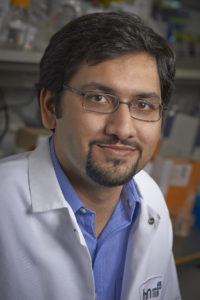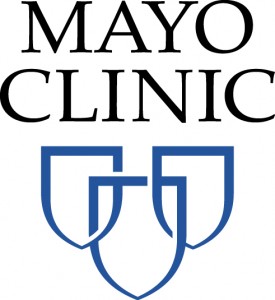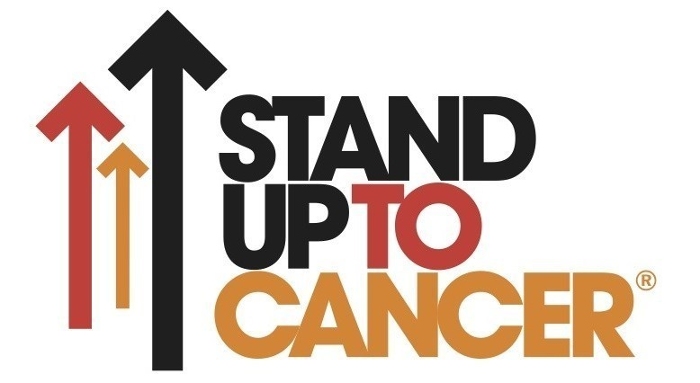Sharp Innovation in Collaboration Award recognizes teamwork and development of new ideas among SU2C researchers

Dr. Muhammed Murtaza
Stand Up To Cancer (SU2C) has selected Dr. Muhammed Murtaza of the Translational Genomics Research Institute (TGen), paired with Dr. Antoni Ribas of UCLA, as recipients of a $200,000 SU2C Phillip A. Sharp Innovation in Collaboration Award, named for the Nobel Laureate and Chair of SU2C’s Scientific Advisory Committee.
The award, first established in 2014, supports opportunities for SU2C scientists from different teams to explore innovative collaborations to accelerate the development of new cancer treatments.
One of five awards totaling $1 million, the award to Dr. Murtaza, an Assistant Professor at TGen, and Dr. Ribas, supports a collaboration to investigate whether it’s possible to predict patient response to immunotherapy by studying the makeup of their microbiomes in blood samples.
Dr. Murtaza is a member of the SU2C-Melanoma Research Alliance (MRA) Melanoma Dream Team. Dr. Ribas is a leader of the SU2C-Cancer Research Institute (CRI) Immunology Dream Team. The selections were made Jan. 29 at the SU2C Scientific Summit in Santa Moncia, Calif.
“The selection of Dr. Murtaza for a Sharp award recognizes his knowledge in the field of liquid biopsies and the potential benefits this technique may offer cancer patients, particularly those with metastatic melanoma, as our Dream Team works to accelerate treatment breakthroughs to improve the survival outcomes against this deadly cancer,” said Dr. Jeffrey Trent, TGen President and Research Director, and leader of the SU2C-MRA Melanoma Dream Team.
While immunotherapy has improved outcomes in metastatic melanoma for a number of patients, for some it remains ineffective and carries toxic side effects. The study by Drs. Murtaza and Ribas is titled: “Fingerprinting the systemic microbiome in plasma to predict immunotherapy outcomes in melanoma.” It will analyze an extensive set of clinically annotated longitudinal blood samples available from the SU2C-CRI Immunology Dream Team to predict immunotherapy response and adverse effects. Recent results show that the gut’s microbial composition may, in part, affect response to immunotherapy. If successful, Drs. Murtaza and Ribas will pursue additional funding to validate their findings.
There also is a prospective study of circulating tumor DNA planned with colleagues at Mayo Clinic in Arizona, where Dr. Murtaza holds a joint appointment an Assistant Professor of Medicine.
Dr. Murtaza joined the Melanoma Dream Team upon his arrival at TGen in 2014 from the Cancer Research UK Cambridge Institute, where he began his work on circulating tumor DNA analysis.
“It’s an honor to receive this award, but more importantly the recognition brings further attention to the work of the entire Melanoma Dream Team and the collective efforts of all SU2C Dream Teams to defeat cancer,” said Dr. Murtaza. “Our goal is to investigate if we can predict how patients with melanoma respond to immunotherapy by looking at evidence of the makeup of their microbiomes in blood samples.”
SU2C and MRA established the Melanoma Dream Team — led by Drs. Trent and Patricia M. LoRusso, D.O., of Yale University — to explore the use of genomic sequencing to examine both the normal and cancer genomes of patients with metastatic melanoma. The study leverages advances in genomics, informatics, and health information technology with hopes of yielding more precise medical treatments for patients with this devastating disease.
In June 2015, clinical trials based on the Dream Team’s research findings began enrolling patients lacking a particular genetic mutation in the BRAF gene, and whose treatment for cancer with immune therapy had failed. Trial results will evaluate if using this precision therapy approach improves outcomes over current treatments.
Patients whose melanoma tumors do not have BRAF alterations will have other specific genetic alterations identified, and investigators will match these changes to an appropriate therapy that directly targets those alterations. The hope is that this “precision medicine” approach will lead to more effective and lasting treatments and potentially spare patients from unnecessary treatments that all too often offer little or no benefit.
In addition to Mayo Clinic in Arizona, the initial clinical trial site in Arizona, other locations include Yale Cancer Center, New Haven, Conn.; the Barbara Ann Karmanos Cancer Institute, Wayne State University, Detroit; Biometrics Research Branch, National Cancer Institute, National Institutes of Health, Rockville, Md.; University of Michigan Comprehensive Cancer Center (UMCCC), Ann Arbor, Mich.; Baylor Charles A. Sammons Cancer Center/Baylor University Medical Center, Dallas; Indiana University, Indianapolis, Ind.; Vanderbilt University, Nashville, Tenn.
“From the beginning, Stand Up To Cancer has striven to break down silos, encourage collaboration, and bring together the best research that will benefit cancer patients,” said Phillip A. Sharp, PhD, Chair of SU2C’s Scientific Advisory Committee and a Nobel Prize winner for his research in genetics. “These awards will help bring us closer to the day we defeat cancer.”
Gateway for Cancer Research Foundation provided additional support for the SU2C-MRA Melanoma Dream Team. AACR, SU2C’s Scientific Partner, provides expert peer review and grants administration, as well as ongoing scientific oversight.
For more information about this clinical trial, please call the Mayo Clinic Cancer Center Clinical Trials Referral Office at (855) 776-0015.

About TGen
Translational Genomics Research Institute (TGen) is a Phoenix, Arizona-based non-profit organization dedicated to conducting groundbreaking research with life changing results. TGen is focused on helping patients with neurological disorders, cancer, and diabetes, through cutting edge translational research (the process of rapidly moving research towards patient benefit). TGen physicians and scientists work to unravel the genetic components of both common and rare complex diseases in adults and children. Working with collaborators in the scientific and medical communities literally worldwide, TGen makes a substantial contribution to help our patients through efficiency and effectiveness of the translational process. For more information, visit: www.tgen.org. Follow TGen on Facebook, LinkedIn and Twitter @TGen.
Media Contact:
Steve Yozwiak
TGen Senior Science Writer
602-343-8704
syozwiak@tgen.org

About Mayo Clinic
Mayo Clinic is a nonprofit organization committed to medical research and education, and providing expert, whole-person care to everyone who needs healing. For more information, visit http://www.mayoclinic.org/about-mayo-clinic or http://newsnetwork.mayoclinic.org.

About Stand Up To Cancer
Stand Up To Cancer (SU2C) raises funds to accelerate the pace of research to get new therapies to patients quickly and save lives now. SU2C, a program of the Entertainment Industry Foundation (EIF), a 501(c)(3) charitable organization, was established in 2008 by film and media leaders who utilize the industry’s resources to engage the public in supporting a new, collaborative model of cancer research, and to increase awareness about progress being made in the fight against the disease. As SU2C’s scientific partner, the American Association for Cancer Research (AACR) and a Scientific Advisory Committee led by Nobel Laureate Phillip A. Sharp, Ph.D., conduct rigorous, competitive review processes to identify the best research proposals to recommend for funding, oversee grants administration, and provide expert review of research progress. Current members of the SU2C Council of Founders and Advisors (CFA) include Katie Couric, Sherry Lansing, Kathleen Lobb, Lisa Paulsen, Rusty Robertson, Sue Schwartz, Pamela Oas Williams, and Ellen Ziffren. The late co-founder Laura Ziskin executive produced the Sept. 5, 2008, and Sept. 10, 2010 Stand Up To Cancer roadblock fundraising telecasts. All current CFA members were producers of the 2012 and 2014 telecasts, with Lisa Paulsen and Pam Williams serving as executive producers in 2014. SU2C was formally launched on May 27, 2008. Sung Poblete, Ph.D., R.N., has served as SU2C’s president and CEO since 2011.
For more information on Stand Up To Cancer, visit http://www.standup2cancer.org
About the Melanoma Research Alliance
The Melanoma Research Alliance is a public charity formed under the auspices of the Milken Institute, with the generous founding support of Debra and Leon Black. It supports an international, cross-disciplinary group of biomedical researchers possessing clinical and scientific expertise to explore, identify and pursue innovative solutions to critical research questions, leading to better treatments and a cure for melanoma patients. Since it’s founding in 2007, MRA has become the largest private funder of melanoma research. For more information about MRA’s research programs, visit www.melanomaresearchalliance.org.
About the American Association for Cancer Research
Founded in 1907, the American Association for Cancer Research (AACR) is the world’s oldest and largest professional organization dedicated to advancing cancer research and its mission to prevent and cure cancer. AACR membership includes more than 35,000 laboratory, translational, and clinical researchers; population scientists; other health care professionals; and cancer advocates residing in 104 countries and territories. The AACR marshals the full spectrum of expertise of the cancer community to accelerate progress in the prevention, biology, diagnosis, and treatment of cancer by annually convening more than 20 conferences and educational workshops, the largest of which is the AACR Annual Meeting with over 18,000 attendees. In addition, the AACR publishes eight peer-reviewed scientific journals and a magazine for cancer survivors, patients, and their caregivers. The AACR funds meritorious research directly as well as in cooperation with numerous cancer organizations. As the Scientific Partner of Stand Up To Cancer, the AACR provides expert peer review, grants administration, and scientific oversight of team science and individual grants in cancer research that have the potential for near-term patient benefit. The AACR actively communicates with legislators and policymakers about the value of cancer research and related biomedical science in saving lives from cancer. For more information about the AACR, visit http://www.AACR.org.
